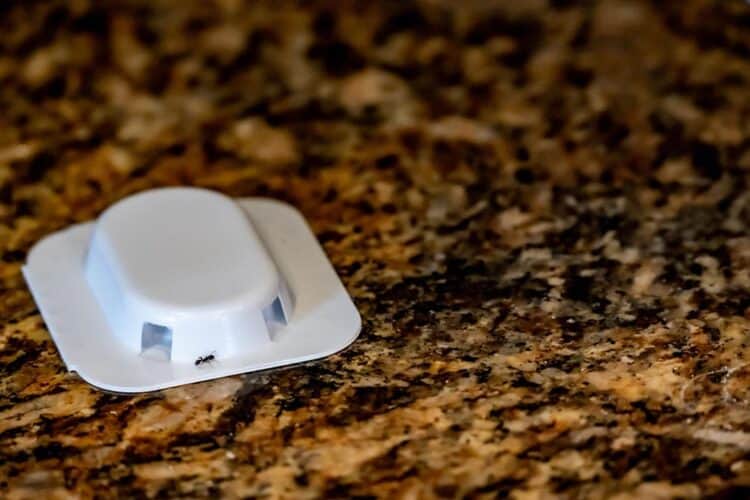If you’ve seen too many ants in your home and decided to take action, you might have heard that ant traps are a great solution. All you have to do is place them around your home, and you’re done. However, are ant traps are safe for cats? It depends! The chemicals used in most modern ant traps, if consumed in small amounts, don’t typically induce serious illness in cats. Whether or not your cat requires emergency help depends on the chemical and the amount your kitty consumes.
What Chemicals Are Found in Ant Traps?
Most modern ant traps have small amounts of one of two chemicals: boron-based compounds and Fipronil are the most common. Neither of these products is fatal to cats if consumed in small portions. Other common ingredients include abamectin, indoxacarb, hydramethylnon, pyriproxyfen, and thiamethoxam. These tend to cause more adverse reactions but don’t usually cause problems in the quantities contained in most household ant traps.
If your cat gets into an ant trap, it should be treated as a medical emergency. Immediately contact your veterinarian or the ASPCA pet poison hotline to ensure you don’t need to take further action.
The veterinarian will want to know what your kitty consumed, how much was eaten, and when the incident occurred. You should also report any troubling symptoms such as lethargy, vomiting, or diarrhea.
Keep in mind that the plastic casing that houses the traps can also be a problem. If your pet eats the plastic, it can cause an intestinal blockage. It’s vital to inform your veterinarian if your feline has consumed any part of the packaging. To keep your pet safe, you should avoid keeping ant traps in your home.
What Are Some Cat-Friendly Ways To Fight the Problem?
Prevention is the best way to keep your house pest-free without introducing chemicals that might harm your furry friend. Ensure you’re not leaving food or crumbs out to entice ants, and try to fix any leaks around your home because ants are attracted to moisture.
Store dry goods like crackers, cereal, and cat food in airtight containers. Don’t leave wet food out for your cat for more than 20 minutes or so, and take the time to wash your pet’s food bowl every day.
If your house is infested with ants, contact a professional. There are several extermination companies that can keep you and your cat safe while getting rid of ants. Most companies require you to keep your cat away from treated areas for a few hours.
A Note on Essential Oils and Other DIY-Pest Killing Methods
Be extremely careful with DIY-pest killing approaches! Many “natural” ant deterrents are toxic to cats. Coffee grounds and capsaicin are commonly recommended substances that are deeply problematic for cats. Coffee grounds can kill a cat, and if your four-footed friend gets into any capsaicin you’ve left out, they can experience vomiting and diarrhea.
Other popularly recommended products, such as peppermint and lemon essential oil, are not safe for cats. Essential oils are some of the most common reasons for emergency vet visits, and if consumed regularly by your cat, they can lead to liver failure.
Featured Image Credit: Shutterstock














